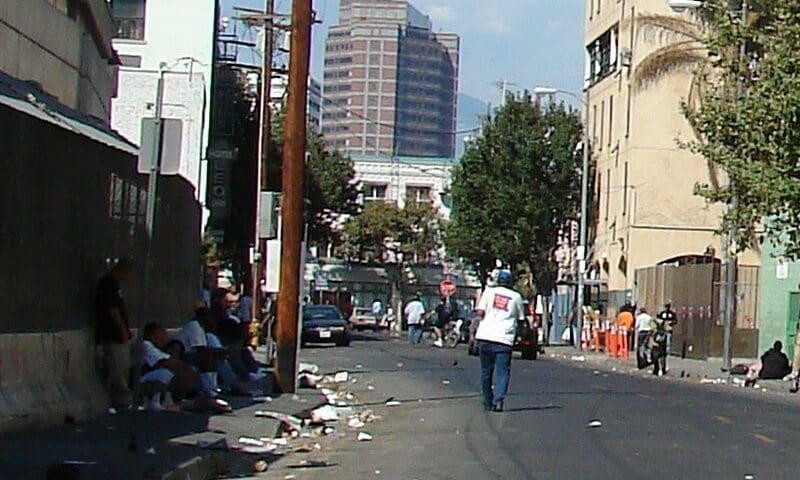

(Editor’s Note: The following includes excerpts from remarks made on KPFK’s Uprising program, which focused on the Los Angeles mayoral debate held January 28 .)
The argument that framed the debate – that Los Angeles could go bankrupt – is ridiculous. L.A. is one of the richest cities in the world. Yes, we face some budget challenges, but the solution is not to gut the modest retirement benefits of hard-working people. We need to focus on creating good jobs, which will increase our tax base, and making sure that we are generating the revenues we should from our incredible city-owned assets.
When the focus of the majority of the discussion is pensions, which is an issue but represents only 10 or 11 percent of the budget, and really is one of many important issues facing the city – when that is the primary subject of conversation most people are left wondering,
» Read more about: The Politics of Bankruptcy: The UCLA Mayoral Debate »


 The state of California has ordered a Southern California warehouse that processes merchandise for Walmart and other retailers to pay 865 workers more than $1 million in stolen wages.
The state of California has ordered a Southern California warehouse that processes merchandise for Walmart and other retailers to pay 865 workers more than $1 million in stolen wages.
The California Division of Labor Standards Enforcement issued the citations Monday, Jan. 28 against Quetico, LLC, a large warehouse complex in Chino, California. Back wages and unpaid overtime total more than $1.1million and in addition the state issued about $200,000 in penalties.
“Quetico is strict when it comes to enforcing its rules with workers so it is only fair that the state enforce the laws that the company broke,” said Abraham Guzman, a warehouse worker who has been at Quetico for about two and a half years. “I am satisfied that the law will now be followed and workers have won justice.”
Last year workers brought concerns to the Warehouse Worker Resource Center, an advocacy organization that works with Warehouse Workers United.
» Read more about: State Hits Walmart Contractor With Wage-Theft Ruling »
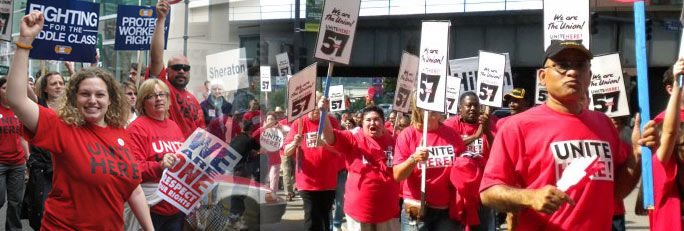
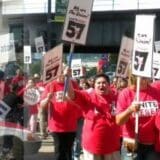
Last week’s annual national union membership numbers were eye-opening, and well, pretty depressing. The relentless attacks on unions nationwide have caused overall union density to drop to a startlingly low 11.3 percent. The share of union members as part of the workforce is the lowest it’s been in 97 years. That’s not just bad news for unions, that’s really bad news for everyone.
According to the Center for American Progress:
Without the counterbalance of workers united together in unions, the middle class withers because the economy and politics tend to be dominated by the rich and powerful, which in turn leads to an even greater flow of money in our economy to the top of the income scale.
Sound familiar?
But despite last week’s bad news on a national level, there were silver linings. Not the least of which is the trend here in California.
» Read more about: California Unions’ Growth Bucks National Trend »
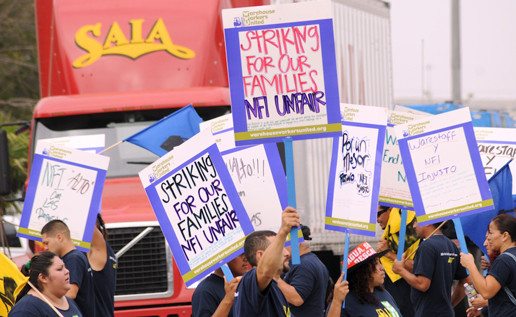

Ask Los Angeles Times reporter Alana Semuels why union membership in California rose by 100,000 in 2012 and she’ll give you a simple answer:
“Latino workers.”
To explain the contrast between the trend in California and the U.S. as a whole – where union membership dropped last year by 400,000 – Semuels turned to some credible sources, including Steve Smith of the State Labor Fed who cited “an appetite among these low-wage workers to try to get a collective voice to give themselves opportunity and a middle-class lifestyle.”
Quoting Smith and others, Semuels finds that, “After working hard to get here, many Latino immigrants demand respect in the workplace and are more willing to join unions in a tough economic environment, organizers say.”
True enough: Immigrant workers have been particularly important for unions in California and Latino organizing has helped reignite the state’s labor movement.


Last year, Walmart gave $918,000 through its foundation to 33 California nonprofits. Amongst the types of organizations: job training, homeless shelters and health groups (see list below).
I scratched my head when I read this. Of course we want to see vital social service groups impacted by severe government funding cuts survive in this economy. Many of us have attended fundraisers for, or donated to these groups ourselves.
But there was something about the nature of the groups that caught my eye. I wondered: Why is Walmart funding groups that provide for such basic needs? Why is a corporation suddenly funding healthcare groups? Altruism? A love for Obamacare? Or is there something else?
Here’s what strikes me about Walmart’s seemingly benign charity efforts: The type of groups they’re funding addresses basic needs (jobs, health, shelter) that good jobs actually fulfill. Walmart, of course, is notorious for not providing such jobs.
» Read more about: Walmart’s Philanthropy Model: Charity and Poverty »


 Ask Adela Valdez how it feels to hear public health experts on TV explain ways to limit a flu outbreak. Get a flu shot, wash your hands, they advise – and if you get the flu, stay home until 24 hours after your fever’s gone.
Ask Adela Valdez how it feels to hear public health experts on TV explain ways to limit a flu outbreak. Get a flu shot, wash your hands, they advise – and if you get the flu, stay home until 24 hours after your fever’s gone.
“One day, I had a fever but I went to work anyway,” Adela said. She’d worked for three years in a factory in New York making expensive lamps. “On the third day, I still had a fever. I felt very sick and I asked permission to go to the hospital.”
Her supervisor’s response? “Fine, go to the hospital, but don’t come back. I need people who come here to work, not to get sick.”
Adela lost her job.
Some management consultants acknowledge that sick workers may spread the flu to co-workers out of fear that they’ll be fired if they stay home to recover.

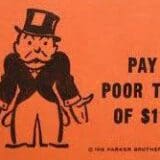
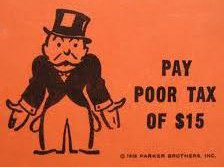 Brace yourself. In coming weeks you’ll hear there’s no serious alternative to cutting Social Security and Medicare, raising taxes on [the] middle class and decimating what’s left of the federal government’s discretionary spending on everything from education and job training to highways and basic research.
Brace yourself. In coming weeks you’ll hear there’s no serious alternative to cutting Social Security and Medicare, raising taxes on [the] middle class and decimating what’s left of the federal government’s discretionary spending on everything from education and job training to highways and basic research.
“We” must make these sacrifices, it will be said, in order to deal with our mushrooming budget deficit and cumulative debt.
But most of the people who are making this argument are very wealthy or are sponsored by the very wealthy: Wall Street moguls like Pete Peterson and his “Fix the Debt” brigade, the Business Roundtable, well-appointed think tanks and policy centers along the Potomac, members of the Simpson-Bowles commission.
These regressive sentiments are packaged in a mythology that [says] Americans have been living beyond our means: We’ve been unwilling to pay for what we want government to do for us,


It was a viral Internet sensation last year, but Boxing Lessons with Eric Kelly is worth a second viewing today, as we swing into a year that promises only sharper divisions between those who control wealth and those who don’t. Eric Kelly, a former amateur boxer from Brooklyn, works at New York’s Church Street Gym, where he trains Wall Street executives in the manly art of self-defense.
Actually, according to the video, he mostly insults these Masters of the Universe nonstop – and they love it. In a recent SB Nation piece on Kelly, writer Brin-Jonathan Butler asked one of the gym’s patrons, a JP Morgan banker, why he has taken up boxing under the dismissive gaze and trash talk of Kelly. Reports Butler:
“You know,” he began with a sheepish smirk, “maybe, deep down, we just miss that whole Occupy Wall Street movement a little bit.


 On November 6, 2012, the people sent a message: Americans cannot be bought. We do believe there is a place for government in providing services that the private sector is ill-equipped to provide.
On November 6, 2012, the people sent a message: Americans cannot be bought. We do believe there is a place for government in providing services that the private sector is ill-equipped to provide.
We have experienced a change in attitude across the country, demonstrated by many of the Tea Party politicians losing their seats and more progressive Democrats winning seats. But we need to stay vigilant. The end of the year did not bring major tax increases for working people and spending cuts, but everything could change in the coming months. The fight hasn’t ended.
I don’t mind the Bush tax cuts expiring for everyone if that is what it takes for the richest One Percent to start contributing more to our economy. But I strongly disagree with the cutting of essential benefits, especially Social Security, Medicare and Medi-Cal. I also reject the notion that there must be a “balanced approach”
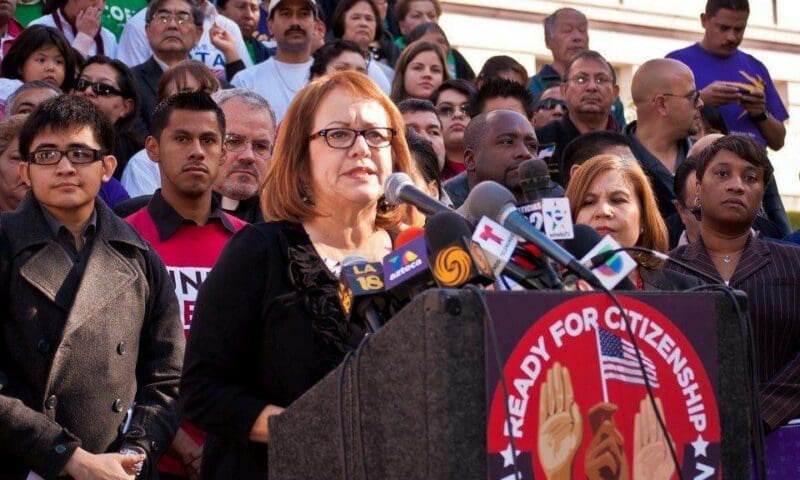
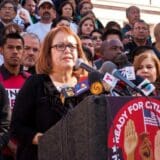
Christian Torres worked as a cook in the Pomona College dining hall for more than six years. Torres and 16 of his co-workers were fired from Pomona College for not re-verifying their work eligibility after the college asked for documents, which were requested while he was leading an effort to organize to form a union. Torres and his brother came to the United States while still teenagers to join their mother and father who were already in the U.S. He supports the movement to create a common-sense immigration process. Although Torres was fired from Pomona, he continues to support his co-workers in their struggle for better working conditions at the college.
Torres, along with a diverse coalition of families, immigrant rights, labor, faith, business, students and elected leaders, sent a clear message last Friday about California’s leadership role in making immigration reform with a path to citizenship possible.
“There are more opportunities to build a stable future in this country,”
» Read more about: California Coalition Calls for Immigration Reform »


In the present (increasingly precarious) workforce more young people with expensive humanities degrees are being forced to utter a phrase that couldn’t be further from the high language of the academy: “May I take your order?” In an awesome new piece in The Nation, Nona Willis Aronowitz draws an important distinction between workers who are forced to take low-paying jobs despite their education and those who are making ends meet the only way they know how.
Aronowitz uses the protagonists from several popular new shows to indicate larger workplace trends. From The Nation:
Post-recession, we often blur the distinction between the downwardly mobile and the permanent underclass—especially when wringing our hands over what will become of millennials, many of whom entered the job market just as it was weakest. Here’s an easy way to tell them apart: both are struggling, but the former has a safety net.
» Read more about: Channeling Poverty: Poor v. Broke on TV »
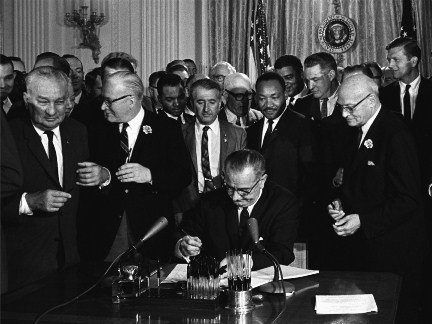
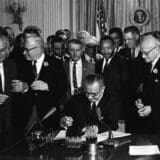
In an action that already feels like ancient history, Congress voted earlier this month to avoid the “fiscal cliff.” While much remains to be settled, the revenue side of the issue got resolved because 84 House Republicans joined 172 Democrats to support the solution negotiated between the President and the Senate. In some ways, such bipartisanship was a moment of déjà vu from a time, nearly 50 years ago, when two pivotal civil rights bills were being considered. Then, Lyndon Johnson was President and both houses of Congress were in the hands of Democrats. Martin Luther King was in the streets. The Student Nonviolent Coordinating Committee was registering voters. The 1964 Civil Rights Act and the 1965 Voting Rights Act were passed by Republicans joining Democrats to move the President’s legislation into law.
In both circumstances – today, as then – it was one party’s Southern flank that refused to go along with its leadership.
» Read more about: Great Migrations: Our Civil Rights Laws and Their Legacy »
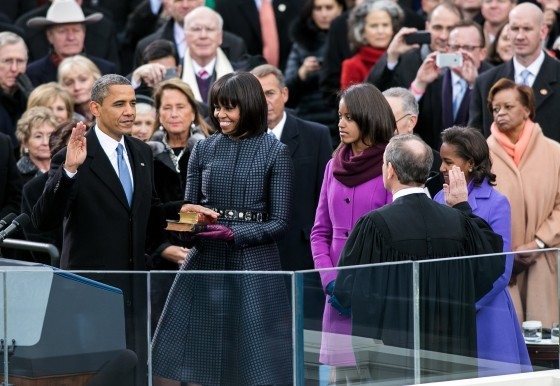

President Obama’s inspiring inaugural address thrust a challenge upon every American: We must work to build a nation which “thrives when every person can find independence and pride in their work;” an America where “the wages of honest labor liberate families from the brink of hardship.”
Confronted by a Republican House and cautious centrist Democrats, the President can only seek progressive economic reform if the 99 Percent organize to demand it.
Fortunately, there’s no shortage of ideas around which we can organize. Here are five practical proposals for redirecting the U.S. economy toward justice, crafted by some of our wisest economic experts.
1) Increase the federal minimum wage to $9.80 per hour, as proposed by Senator Tom Harkin and Rep. George Miller. This one simple step will improve the lives of 29 million workers. Contrary to claims by the fast food chains and other low wage employers,
» Read more about: Achieving Obama’s Economic Goals: Five Steps to Take »
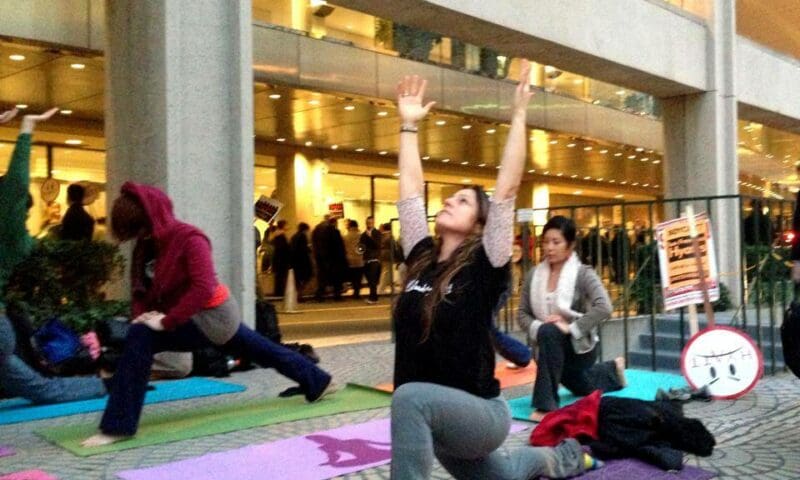

Each year, some 2,000 yoga enthusiasts assemble at the Hyatt Regency Hotel in San Francisco, California for “a great convergence of yogis of all ages and backgrounds,” states convention sponsor Yoga Journal. The extremely liberal and tolerant “City by the Bay” seems the perfect spot to spiritually and intellectually delve into yoga principles of social service and physical purification.
“But there is one huge problem,” according to 19-year veteran yoga instructor Sri Louise. “There is a huge disconnect with our ethical values by scheduling a convention at a union boycotted hotel that has a lousy safety record and mistreats it employees.”
A January 17 late afternoon picket by around 150 UNITE-HERE Local 2 supporters made this point loud and clear.
UNITE-HERE Local 2 union representative Julia Wong told me:
“This has been an active boycott with regular picketing for three years and Yoga Journal has not taken us seriously.
» Read more about: Bad Karma at San Francisco’s Hyatt Regency »


Forty-five years after his death, Martin Luther King’s vision of racial and economic progress continues to exert a powerful influence on our society. In this video, Marilyn, a young African-American electrician apprentice, reflects on MLK’s legacy and how construction work and access to a good career has radically improved her life. Construction gives Marilyn not only socioeconomic mobility, but also an intellectual and physical challenge.
“From the Ground Up” is a series of videos profiling diverse individuals within the construction trades, ranging from veterans to women to former convicts to youth of different incomes and ethnicities.
Happy Martin Luther King Jr. Day to all! Please enjoy the video and share it with friends.
» Read more about: Dr. King’s Economic Legacy: Jobs and Justice »
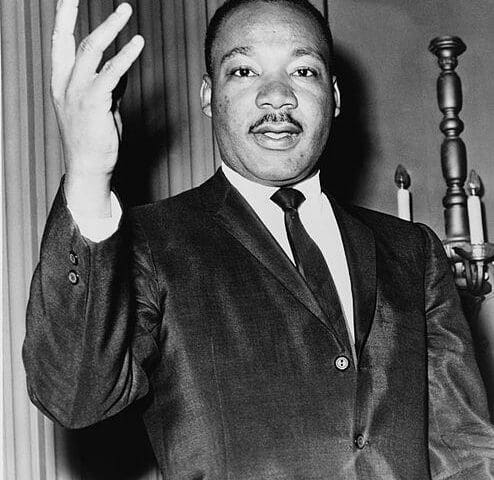
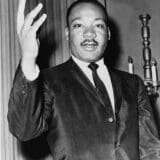
Today Rev. Martin Luther King Jr. is viewed as something of an American saint. His birthday is a national holiday. His name adorns schools and street signs. Americans from across the political spectrum invoke King’s name to justify their beliefs and actions, as President Barack Obama will no doubt do in his second Inaugural speech and as gun fanatic Larry Ward recently did in outrageously claiming that King would have opposed proposals to restrict access to guns.
So it is easy to forget that in his day, in his own country, King was considered a dangerous troublemaker. He was harassed by the FBI and vilified in the media.
In fact, King was radical. He believed that America needed a “radical redistribution of economic and political power.” He challenged America’s class system and its racial caste system. He was a strong ally of the nation’s labor union movement. He was assassinated in April 1968 in Memphis,
» Read more about: Martin Luther King Jr., Eternal Radical »
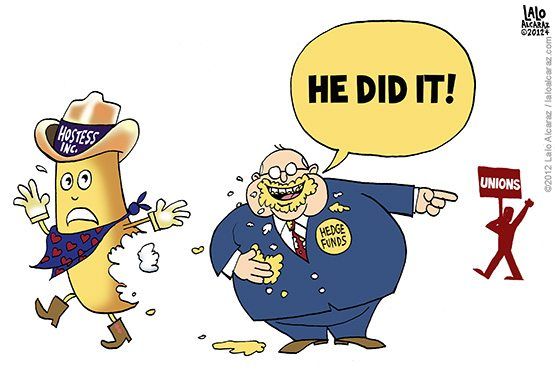



Last week’s purchase of the SF Weekly by the owners of the SF Examiner and Bay Guardian was a shocking and telling development. It was shocking because few seemed to care, and telling because it showed the increasingly irrelevance of daily print English language media in San Francisco. I described in 2009 why the San Francisco Chronicle’s huge financial losses and circulation decline put its future as a daily print newspaper in doubt, and these losses have continued while the paper has fallen out of the top 25 in circulation for the first time (its print version had only 165,000 readers in March 2012, a nearly 50 percent drop since 2009). The Chronicle’s owner is looking to profit from real estate development, not journalism. Layoffs at the SF Weekly have begun and the staffs of the once combative weeklies will eventually merge.
» Read more about: Economy and Technology Pound Bay Area Newspapers »


The Line, whose trailer appears here, is Emmy Award-winning producer Linda Midgett’s 44-minute documentary about the many faces of poverty in America. The film examines and explodes prevailing myths about people living below the poverty line, reminding us that most of America’s poor live in its suburbs and not the inner city. To learn more about The Line or to view the entire film, go to this link.